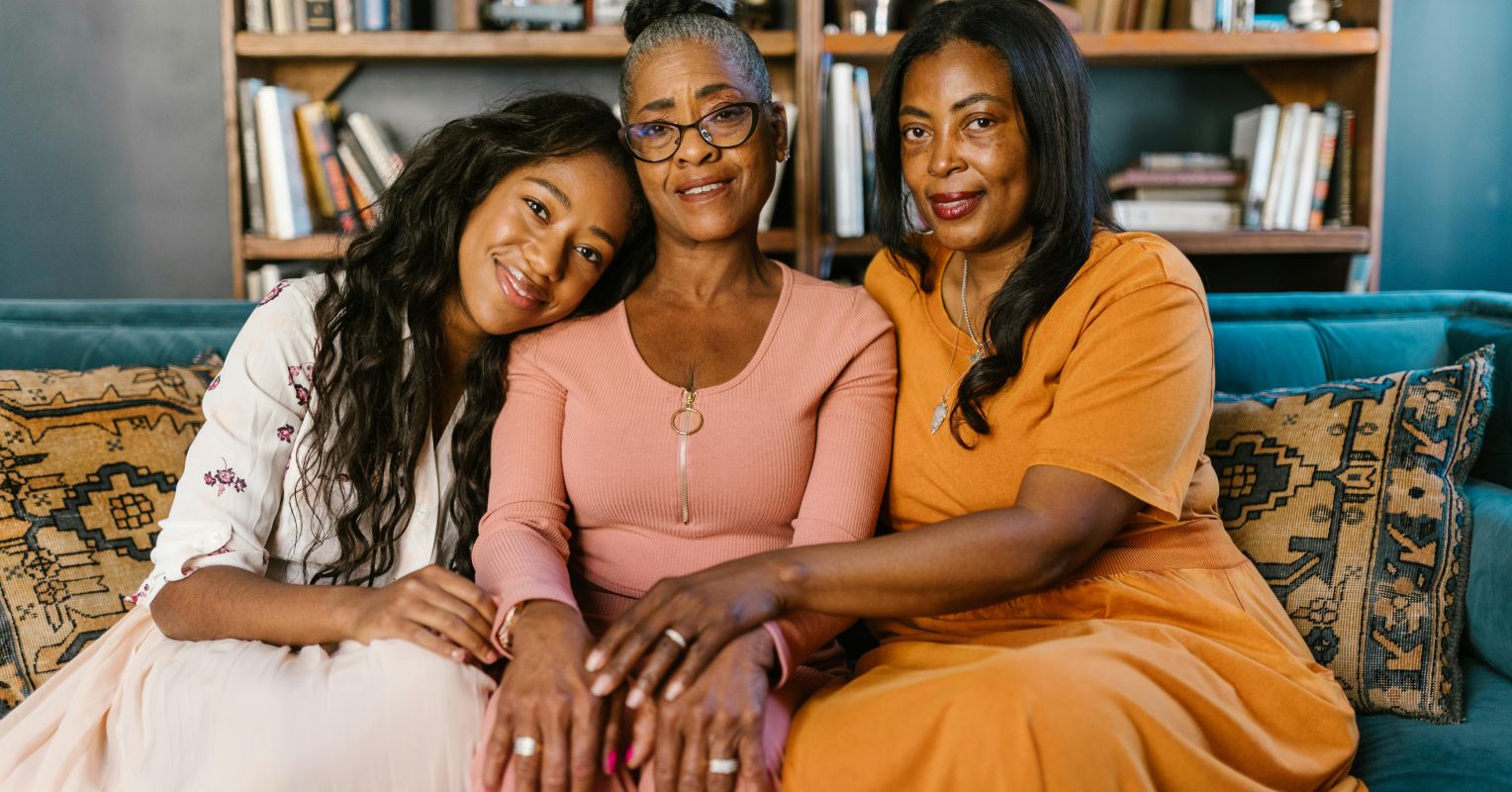
Black motherhood is more than a role. It is a cultural inheritance, a psychological blueprint, and, often, a form of resistance. The relationship between Black mothers and daughters reveals the layered complexities of intergenerational survival, caregiving, and adaptation. These dynamics are not simply personal. They are shaped by histories of racial trauma, structural neglect, and cultural expectations about strength and silence.
Across generations, Black mothers have raised children under immense pressure. Their love is often expressed through protection, sacrifice, and unspoken devotion. Yet under the weight of caregiving is the reality that many mothers are parenting while carrying their own histories of trauma, grief, and loss. These lived experiences ripple through the mother–daughter bond, shaping how emotions are expressed, identities are formed, and mental health is negotiated.
Emotion, Strength, and Silence
My research on Black mother–daughter relationships across the life course shows that emotional self-regulation is often modeled through silence rather than open dialogue. Many Black mothers, raised to survive in environments that did not permit vulnerability, pass along coping strategies that emphasize control, resilience, and strength. While these strategies serve a protective purpose, they also come with psychological trade-offs.
Daughters who grow up with emotional silence often internalize their pain. This can lead to emotional suppression, self-blame, and difficulty seeking help in adulthood. The phrase “being strong” may come to mean “being silent,” and any expression of emotional need may be interpreted as weakness. In clinical practice, this may present as high-functioning anxiety, perfectionism, or even depressive symptoms masked by achievement.
Additionally, many daughters learn early that they are responsible for managing not only their own emotions but also those of their mothers. This role reversal, known as parentification, can lead to chronic stress, guilt, and a distorted sense of self-worth. In my work, this pattern emerged consistently. Daughters often felt emotionally burdened, but also deeply loyal to their mothers and hesitant to disrupt the family narrative of survival.
Mothering While Healing
Black mothers are often navigating their own mental health challenges while parenting. Many have limited access to culturally responsive therapy, community-based support, or the time and resources to process their own histories of trauma. Yet despite these barriers, many mothers begin to break cycles. They reflect on their upbringing and attempt to do things differently, even without a clear model.
This process is known as reflective parenting, and it is a powerful tool for relational healing. When mothers begin to name and make sense of their own emotional patterns, they create space to respond differently to their children. This is not just behavioral change. It is neurological and emotional re-patterning. It allows mothers to shift from reacting to reflecting, and in doing so, opens the door for deeper connection and repair.
These shifts have measurable effects on mental health outcomes. Daughters who experience maternal warmth, validation, and emotional availability are more likely to develop healthy self-concepts, show greater emotion regulation, and are less likely to experience internalized shame. Even when the relationship has had ruptures in the past, these repair efforts offer a protective buffer against long-term psychological distress.
Resistance Through Reconnection
Black motherhood is not only about what is inherited. It is also about what is refused. The refusal to perpetuate harm. The refusal to normalize silence. The refusal to raise children in emotional isolation.
In recent years, a growing number of Black mothers are choosing to raise their daughters with greater emotional literacy. They are encouraging open dialogue, modeling self-care, and validating their children’s emotional worlds. These practices do not erase the realities of racism or historical trauma. But they do offer daughters a different script—one that includes rest, softness, and joy.
This is where psychology and liberation meet. These everyday parenting choices are not just about raising healthy children. They are about breaking intergenerational cycles of trauma and restoring psychological freedom. For many Black families, this shift represents a profound act of resistance.
Mental Health Is a Family System
From a psychological perspective, the Black mother–daughter bond is a powerful site of emotional transmission. It shapes emotional development, identity formation, and long-term well-being. When daughters internalize a culture of silence, their mental health suffers. When mothers begin to heal, their children experience the benefits of that healing in real time. These are not just anecdotes. They are relational truths, supported by decades of family systems research and echoed in the lived experiences of countless Black women.
Investing in the mental health of Black mothers is not just an investment in one individual. It is an investment in the psychological health of future generations. It is a chance to transform silence into voice, pain into purpose, and survival into thriving.
